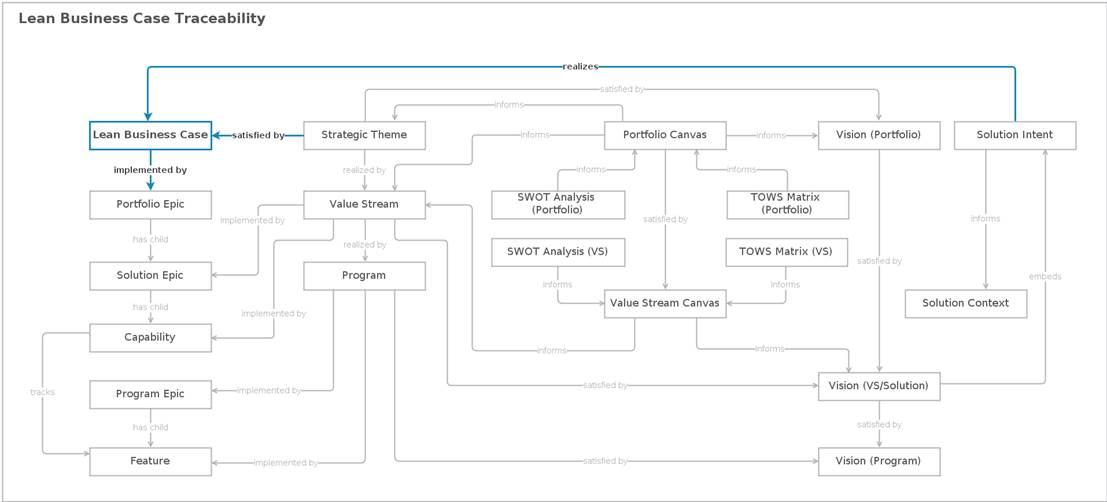| Artifact: Lean Business Case |
OverviewA Lean Business Case is an artifact prescribed by SAFe that captures the results from analysis done in the Analysis phase of the Kanban process. Ultimately, it is used to make a go/no-go decision for a Portfolio Epic or a Solution Epic . To learn more, visit the Scaled Agile Framework topic on Epic. Artifact TemplateThe Lean Business Case has a corresponding artifact template that can be used when you create a new Lean Business Case artifact. The template reminds you about the things you should consider when crafting the business case. The template looks like this: [Epic Name] Business Case Epic Description <Derived from the Epic Hypothesis Statement in the linked Epic> Outcomes Hypothesis: <Describe how the success of the Epic will be measured>. For example
In Scope
Out of Scope
Non-Functional Requirements
Minimum Viable Product (MVP) Features
Additional Potential Features
Stakeholders/Sponsors <List the key business sponsors who will be supporting the initiative> Users & Markets Affected <Describe the user community of the solution and/or any markets affected> Products, Programs & Services Affected <Identify the products, programs, services, teams, departments, etc., that will be (potentially) impacted by this Epic> Impact on Sales, Distribution, Deployment <Describe any impact on how the solution/product is sold, distributed or deployed> Analysis Summary <Brief summary of the analysis that has been completed to create this initial business case> Incremental Implementation Strategy <Epics are defined as a single whole, but each epic undergoes incremental implementation. Describe it here.> Sequencing & Dependencies <Describe any constraints for sequencing the Epic and identify any potential dependencies with other Epics.> Milestones & Checkpoints <Identify potential milestones or checkpoints for re-evaluation of this Epic.> Attachments <Attach any supporting docs.> AttributesThe Lean Business Case artifact type defines the following custom attributes:
StatesThe Lightweight Business Case artifact type has this workflow:
Traceability
|
| Artifact type in DOORS Next. |
| Roles | Responsible: | Modified By: |
|---|---|---|
| Tasks | Input To: | Output From: |
© Copyright IBM Corp. 1987, 2020. All Rights Reserved. |
